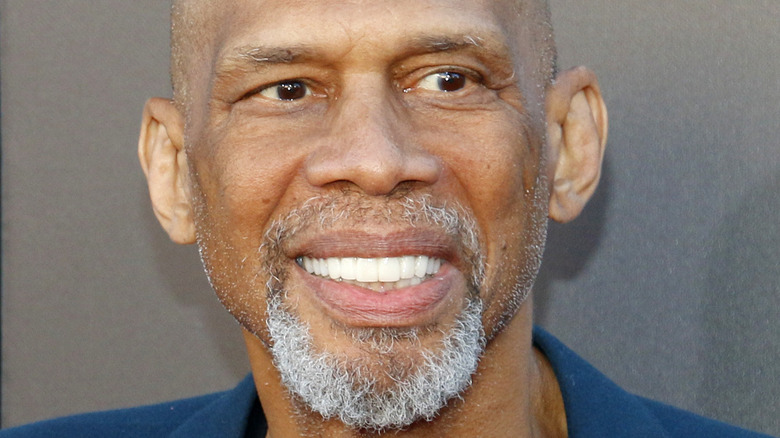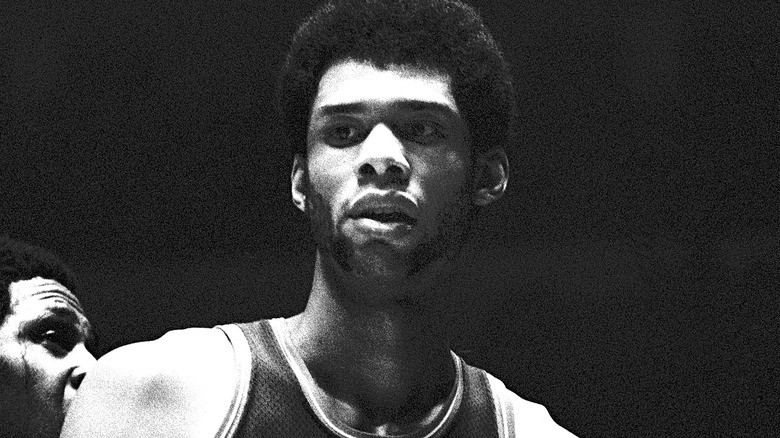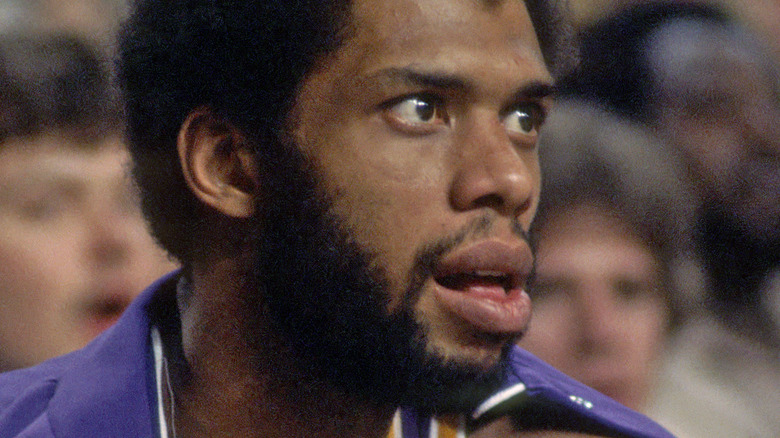How Did Kareem Abdul-Jabbar Get His Name?
In the entertainment industry, it's pretty common for a performer to adopt a stage name for a variety of reasons — some of which are at best outdated, and others for which are perfectly understandable. Regarding the former, perhaps their management feels their real name is too "ethnic," or that it's too common or dull. Regarding the latter, on a lighter note, perhaps the performer wants to separate their stage act from their personal life.
In sports, however, most athletes play their entire careers using their original given name. After all, in professional sports, there's ostensibly, ideally no real need to market an image or a persona, and what you do on the field should speak for itself. Even so, there are still a few athletes who have changed their names during their careers — and for some, it was for religious reasons.
Specifically, there have been examples of Black athletes in sports history who have ditched their birth names and taken on new names after converting to Islam. One famous example of this is boxing champ Cassius Clay, better known as Muhammad Ali. Another Black athlete who retired his birth name after converting to Islam was Kareem Abdul-Jabbar, who played professional basketball for a couple of years under his given name before changing it completely, according to ESPN.
Lew Alcindor experienced racism-fueled prejudice
Born Ferdinand Lewis Alcindor, per ESPN, the future basketball player was born in Harlem, New York City, in 1947. In his late teens, Alcindor struggled with the racism he encountered as a Black man, particularly at a time -– the late 1960s –- during which the United States underwent a social and cultural upheaval. The Vietnam War was raging on, the Civil Rights Movement was going strong, and the Sexual Revolution was beginning to flourish.
For Alcindor, the divide between Black and white Americans became increasingly apparent. This all came to a head for the future athlete, who was a senior in high school when his basketball coach called him the n-word — less than a year after the 1965 assassination of activist Malcolm X.
Years later, this, along with the assassination of Dr. Martin Luther King Jr., influenced Alcindor's decision to decline to represent the United States in the 1968 Mexico City Olympics, as he recalled in his 2017 memoir "Coach Wooden and Me" (via The TODAY Show). "I seemed to permanently reside in the exclusive neighborhood of Between a Rock and a Hard Place," the former Lakers legend wrote of his decision. "I tried to make the point that true patriotism is about acknowledging problems and, rather than running away from them, joining together to fix them."
Kareem Abdul-Jabbar changed his name after converting to Islam
Kareem Abdul-Jabbar, then known as Lew Alcindor, was introduced to Islam as a freshman while attending UCLA. As he would later write for Al Jazeera in 2015, he came to understand and connect to the religion over the next few years. In 1971, after having practiced Islam for a few years, per ESPN, he chose to rename himself "Kareem Abdul Jabbar" (which translates to "noble one, servant of the Almighty"), later explaining that doing so solidified his true identity as a Black man. Even more so, it was also a way of rejecting the religion and name given to his ancestors when they were enslaved centuries ago.
At the time, Adbul-Jabbar's teacher was his friend, a man named Hammas Abdul-Khaalis, though it's not clear whether or not Abdul-Khaalis helped the superstar athlete choose his new name, if he even chose it for him, or if Abdul-Jabbar picked it himself. Nevertheless, it would be what Adbul-Jabbar would be known as for the remainder of his career and post-basketball life.


